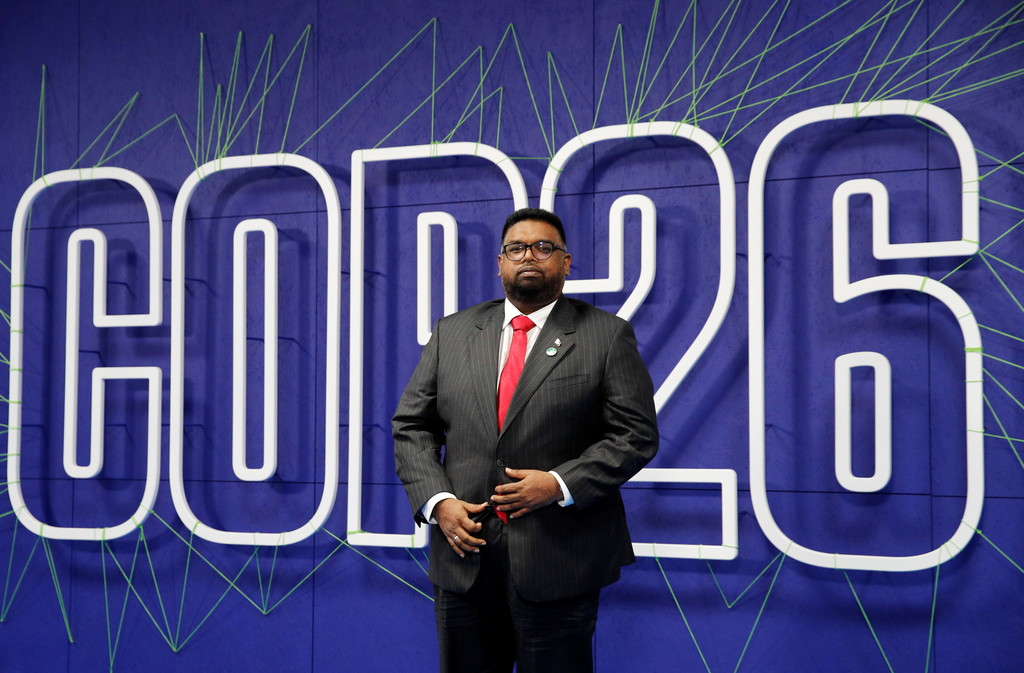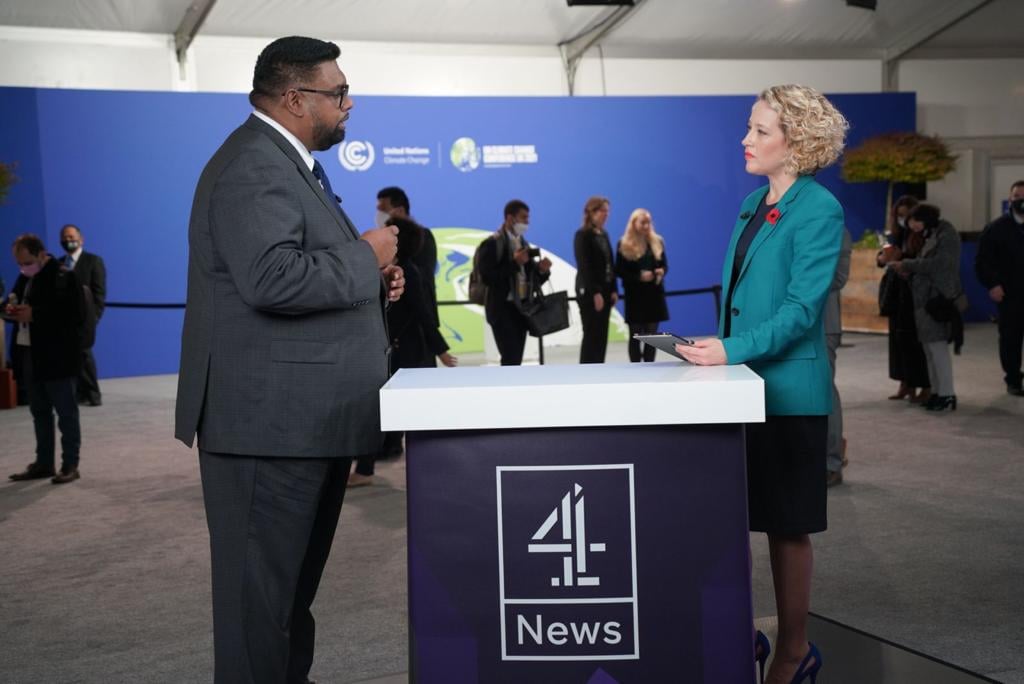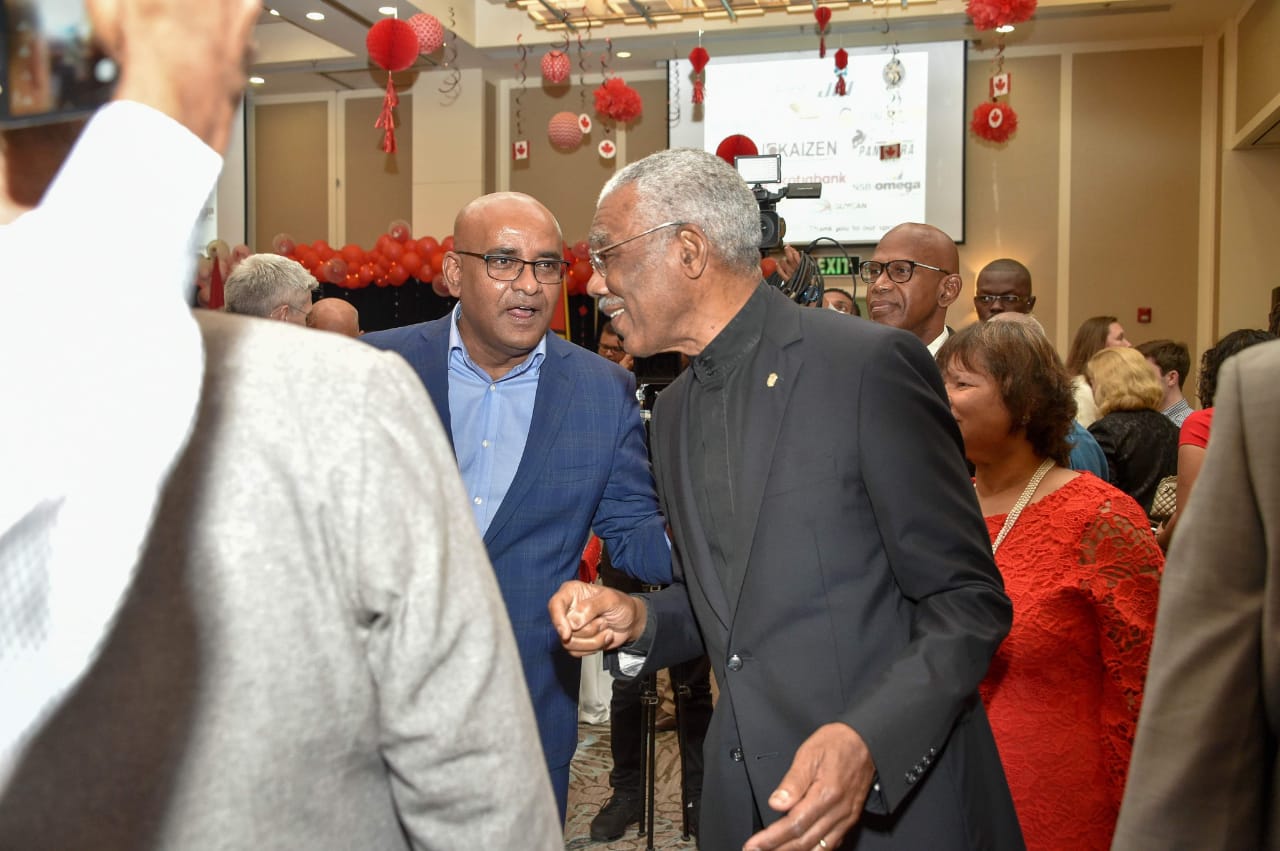
President Irfaan Ali on Tuesday signed on to a new agreement by global leaders to stop the destruction of forests and invest US$12 billion in public funds to protect and restore forests.
There was also a pledge of US$7 billion in private investment.
The agreement was signed by over 100 other leaders attending the United Nations Climate Summit in Glasgow.
The signing of the agreement was merely symbolic for Guyana, as the country has one of the lowest deforestation rates in the world and has intact forests the size of England and Scotland combined.
“For us in Guyana, it is not about deforestation; we’re already there,” he said in an interview on Britain’s Channel 4 news programme Tuesday evening (London time).

He noted that Guyana’s forests store more than 20 gigatones of the harmful greenhouse gas carbon dioxide which contributes to global climate change. The carbon dioxide tress breathe is that released from burning coal, gas and natural gas used by industrialised nations.
Those countries, and the private companies which operate in them, are among those who should be paying Guyana and other forest-rich nations for keeping their forests intact.
“It (carbon) must be a tradeable commodity,” he said during the interview.
“Our forest is still there and we have been pursuing compensation, or payments,” the President said.
Guyana’s first forest-saving deal was with Norway over a decade ago, earning the country over US$200 million.
The President, speaking during his address to the climate summit, said “it is imperative” that rules for carbon markets and REDD+ (the scheme to pay countries for keeping forests standing) be finalized. That way, he said, the proper value of the forests and the ecosystem services they provided could be determined and hence countries which keep forests alive would be compensated.
The President made clear Guyana’s position.
“We will maintain our forests – almost the size of England and Scotland combined, storing 20 gigatons of carbon – as a global asset. We will work with local communities in conserving, protecting and sustainably managing our forests, biodiversity and freshwater supplies.”





